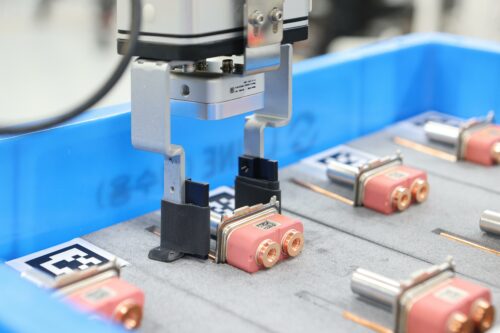KIMM has developed AI technology for robot work that can be applied to various manufacturing processes, currently undergoing testing by EV parts manufacturers.

For the first time globally, an artificial intelligence (AI) technology has been developed to simplify the integration of robots into manufacturing processes. This innovative technology is versatile and applicable in various sectors, including automobile manufacturing, machine part production, assembly, and other production processes. It holds promise for enhancing the future work environment at manufacturing sites.
Researchers at the Department of AI Machinery, part of the Korea Institute of Machinery and Materials (KIMM) under the Ministry of Science and ICT, have developed an AI technology for robot work specifically designed for easy integration into manufacturing processes. This technology is now being implemented in the manufacturing processes of electronic component producers. The team aims to progressively extend this technology’s application to a broader range of manufacturers.
The robot utilizes the “Large Language Model (LLM)” and a virtual environment. This technology is designed to understand user commands, automatically generating and executing tasks for the robot. It enables the creation of task sequences and movements through voice or text commands. By pre-learning in a virtual space, the technology can select the optimal work point for the site. It also streamlines the work process with automatic object detection and collision avoidance capabilities.
Utilizing robots at manufacturing sites often requires altering the site to accommodate the robot rather than adapting the robot to the existing work environment or objects. This limitation significantly restricted the range of tasks that robots could perform. The development of technology that integrates various task-related aspects, like movement and recognition, has been partial at best. Although recent advancements have seen AI technologies like LLM being integrated with robots for multiple tasks, applying these technologies in real-world settings has been challenging. This is primarily because testing has been confined to laboratory environments rather than work sites.
The new technology allows robots to perform specific task assignments efficiently with minimal on-site modification, thanks to pre-learning in a virtual space. Ongoing on-site demonstration tests suggest this technology will adeptly handle various future scenarios at manufacturing sites.






